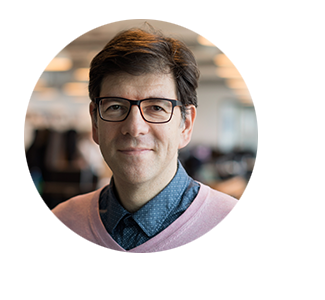

How think tanks and funders can get more out of their relationship
Everything you ever wanted to know about funders of think tanks but were afraid to ask
Think tanks and their funders share a symbiotic yet often fraught relationship. While funders provide essential resources, think tanks deliver critical policy insights and innovations. However, misunderstandings about each other’s expectations and roles can lead to inefficiencies and frustrations. There are several practical ways for think tanks and funders to build stronger, more effective partnerships and drive meaningful social and policy change, even if their priorities differ.
Understanding the Landscape
At the heart of the think tank-funder relationship lies a power dynamic shaped by funding asymmetries, differing priorities, and sometimes conflicting motivations. Funders may seek measurable policy impacts or alignment with their missions, while think tanks strive for independence and credibility in their funding. Misaligned goals often lead to friction, such as administrative burdens or unrealistic impact expectations. These challenges aren’t insurmountable but require thoughtful approaches and open communication.
Key Challenges in Fundraising and Collaboration
- Two Audiences, Two Markets vs Audience is the Market. Some think tanks operate in dual markets: one catering to funders and another to policymakers and the public, making it hard to balance priorities. They must navigate the fine line between addressing funders' needs without compromising their own public mission. Other think tanks are paid by those who seek policy advice, so their audience and market are one and the same. These organizations struggle to separate themselves from consultancies and to not be treated as “hired guns.”
- Maintaining Independence. The perception of neutrality is crucial for think tanks to maintain the credibility of their research, yet funders often have their own agendas. This can lead to tension, especially when think tanks feel pressured to align their research with donor priorities. For instance, addressing controversial issues may jeopardize funding relationships, despite the necessity of such work for meaningful societal impact. Another challenge is that because donors work with many types of organizations, they have limited bandwidth to learn and adapt to the specificities of different think tank operations.
- Impact Expectations. One recurring frustration is funders’ varying understanding of what “real impact” means in the policy world. Too often, there is a tension between funders' demand for quick results and the slow, long-term and iterative nature of policy work. Think tanks need to manage these expectations by emphasizing realistic metrics for success, such as incremental policy shifts or elevated discourse on critical issues.
Myths and Misconceptions
Several myths also perpetuate misunderstandings between funders and think tanks:
- The Myth of Neutrality: Funders and some think tanks perceive the latter as purely impartial actors. While neutrality is a guiding principle for their credibility, think tanks also operate within current political realities and have their own overarching missions.
- The Myth of Older Equals Better: Established think tanks don’t necessarily outperform newer ones. Funders should assess organizations on quality and relevance, not just tenure. Think tanks need to constantly reevaluate and prove their relevance and quality.
- The Myth of Comparable Political Contexts: The political and cultural context greatly influences think tank effectiveness. Funders should tailor their expectations accordingly, rather than applying an approach that worked well in a similar place. Think tanks should be vocal about these constraints.
- The Myth that All Funders are the Same: Within the civil society spectrum, think tanks are arguably the best analysts of policy and the political environment. Unfortunately, many do not use this skill and invest the time to get to know their funders better. They are guilty of projecting the perception of one funder, usually negative, onto the others. To their detriment.
Strategies for Success
- Balance Priorities with Independence. Maintaining intellectual independence is non-negotiable for think tanks. Open dialogues with funders about boundaries and expectations can help safeguard this independence while addressing funder goals. Think tanks can also diversify their funding sources to reduce reliance on any single donor.
- Define and Align Goals Early to Avoid Mismatching Expectations. Establishing shared definitions of success can prevent misaligned expectations, one of the challenges identified above. Funders and think tanks should collaboratively set measurable objectives, such as influencing key stakeholders, establishing relevance on a given policy subject or producing actionable policy recommendations, rather than nebulous goals like “achieving impact.”
- Transparency as the Cornerstone of Trust. Transparency about costs, capabilities, and limitations is key to fostering mutual trust. Think tanks should clearly communicate what their research entails, how it supports funders' goals, and what resources are required for success. Transparency and fully budgeted proposals help think tanks maintain independence, which is essential for their credibility.
- Advocate for Realistic Cost Funding. Funders often underestimate the full cost of producing high quality research, leading to financial strain for think tanks. Think tanks, on the other hand, sometimes submit budget proposals below realistic expenditure expectations. While this may lure contracts in the short term, it risks medium- and long-term financial difficulties. Educating funders about these costs, including administrative costs and staff training, is crucial. Find the cost structure of a policy product created by a reputable consulting firm that a government or international organization has already paid for. Then use it as a reference for what these institutions are willing to pay others. Sector-wide advocacy for full-cost funding models can ensure sustainability.
- Leverage Peer Learning. Think tanks have much to gain from learning from peers and other actors in the field. Sharing best practices for donor engagement, fundraising, and collaboration can strengthen organizational strategies and reduce common pitfalls. While think tanks compete with each other, they must build a guild-like structure to define common standards and protect common interests in their field.
Moving Forward
Building effective think tank-funder relationships is an art that requires mutual understanding, clear communication, and a commitment to shared goals. By addressing common challenges, debunking myths, and adopting proactive strategies, think tanks can enhance their impact while maintaining their independence.
To foster lasting partnerships, both funders and think tanks must ask the hard questions: Are we aligned on expectations? Are we communicating openly? Are we willing to adapt to achieve our shared vision?
Call to Action: Think tanks should engage in regular reflection on their donor relationships, ensuring alignment and transparency. Funders, in turn, should invest in understanding the unique dynamics of think tank work and support them with flexible, comprehensive funding. Together, they can drive meaningful policy change and social progress.
Suggested Further Reading
- Four Ways to Build Genuine Donor Relationships by Sulamba Shaban, On Think Tanks, 2019.
- How Funder Pressures Can Torpedo the Credibility of Research by Till Bruckner, LSE, 2017.
- Exploring Political Philanthropy by Marcela Morales, On Think Tanks, 2024.
Goran Buldioski
Senior Fellow,
Hertie School

Goran Buldioski is a Senior Fellow at the Hertie School in Berlin, Germany. Previously has led the work of Open Society Foundations in Europe (2015 – 2024) and on think tanks in Europe and worldwide (2005-2015). He also worked for the Council of Europe (2000-2005). With over twenty years of experience in philanthropy, democracy promotion, policy research, think tanks and development of civil society, Goran is a frequent speaker at international forums and a thought leader on the role of philanthropy and civil society in driving systemic change. His articles have been published in Foreign Policy, Politico, EU Observer, Die Zeit, Fokus, Tagesspiegel and Visegrad Insight among others. Goran is a member of the European Council of Foreign Relations (ECFR) and serves as a senior adviser to On Think Tanks (OTT).